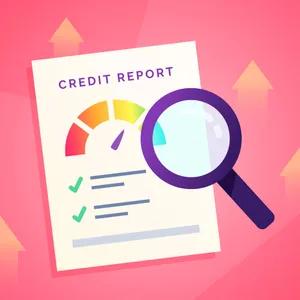For investors, tax season is a lot heavier than just filing a W-2. You have to sort through dozens—or even hundreds—of transactions reported on Form 1099-B. This includes managing:
- Capital gains and losses
- Dividends
- Cryptocurrency activity
Picking the right software isn't just about filing; it’s about getting the data right to avoid expensive mistakes.
Here is a breakdown of the best tools available today. They fall into two main groups: All-in-One Filing Suites and Specialized Trackers for complex trading.
Best All-in-One Filing Suites
(The Simple Solution)
These programs take you from start to finish. They handle your personal return (Form 1040) and most standard investment forms. These are best if you use popular, major brokerages.
1. TurboTax Premier/Deluxe
Best For: Effortless Broker Integration.

TurboTax is the king of auto-importing. It connects directly with hundreds of brokers, including Fidelity, Schwab, Robinhood, and Moomoo.
For most people, connecting your account allows TurboTax to pull in all your Form 1099-B data—including the cost basis—without you typing a thing. Their accuracy guarantees and audit defense are also top-tier.
The Catch:
- It gets pricey. You have to buy the "Premier" or "Self-Employed" versions to unlock investment features.
- Complexity limits. It can struggle with complex moves like specific wash sales or non-US investments. Crypto often requires manual entry or an extra paid service.
2. H&R Block Deluxe/Premium
Best For: Good Value and In-Person Help.

H&R Block is a solid, budget-friendly alternative to TurboTax. The software offers clear guidance and handles the big investment forms (1099-B, DIV, INT) easily.
The unique benefit here is the "hybrid" option. If you get stuck, you can quickly get help at one of their physical retail offices.
The Catch:
- Integration isn't as smooth. You might face more manual checks than with TurboTax, especially if you use smaller or newer trading apps.
Specialized Investment & Crypto Trackers
If you trade crypto, options, or juggle funds across different wallets, you need a dedicated third-party tool. These calculate your gains and losses before you start filing.
3. CoinLedger / Koinly
Best For: Crypto Traders and DeFi Users.
These platforms are built to gather digital assets from 100+ exchanges, DeFi networks, and wallets. They handle the messy accounting specific to crypto, such as:
- NFT sales
- Staking rewards
- Calculating cost basis (FIFO, LIFO)
They spit out a formatted document (like a Form 8949) that you can upload directly into TurboTax or H&R Block.
The Catch:
- They don't file taxes. These tools only collect and organize data. You still need to buy a separate filing suite to actually submit your return.
4. TradeLog
Best For: High-Volume Day Traders.

TradeLog is hyper-focused on finding tax savings for active stock and options traders. It uses special algorithms to optimize wash sales and tricky rules, often finding deductions that generic software misses. It is built to handle thousands of trades instantly.
The Catch:
- High barrier to entry. It is expensive and takes time to learn. It’s usually only worth the money if you make hundreds of trades a year.
Advanced Considerations
Dealing with Complexity
Your spending should match your complexity.
- Simple Portfolio: If you hold a few blue-chip stocks in one account, the standard Deluxe tier of a major suite is fine.
- Complex Portfolio: If you short-sell or trade options heavily, invest in better tracking. Messing up just one day of leveraged trades can lead to audit headaches.
Forms You Must Watch For
Tax software helps manage these three key forms:
- Form 1099-B: Reports sales of stocks/crypto (shows gains and losses).
- Form 1099-DIV: Reports dividends and capital gain distributions.
- Form 1099-INT: Reports interest earned on cash in your accounts.
The Self-Employed Investor
If you freelance or have a side hustle, make sure to buy the Self-Employed or Premium tier. This handles your investments (1099-B) and your business income (Schedule C) in one place. It’s worth the extra cost to avoid using two separate products.
Match the Software to Your Needs.
If your investment life is straightforward, TurboTax Premier is the most efficient choice because it imports data so well.
However, if you have crypto, complex options, or high volume, start with a specialized tracker like CoinLedger or TradeLog. Get your data accurate there first, then use a filing suite to finish the job.






